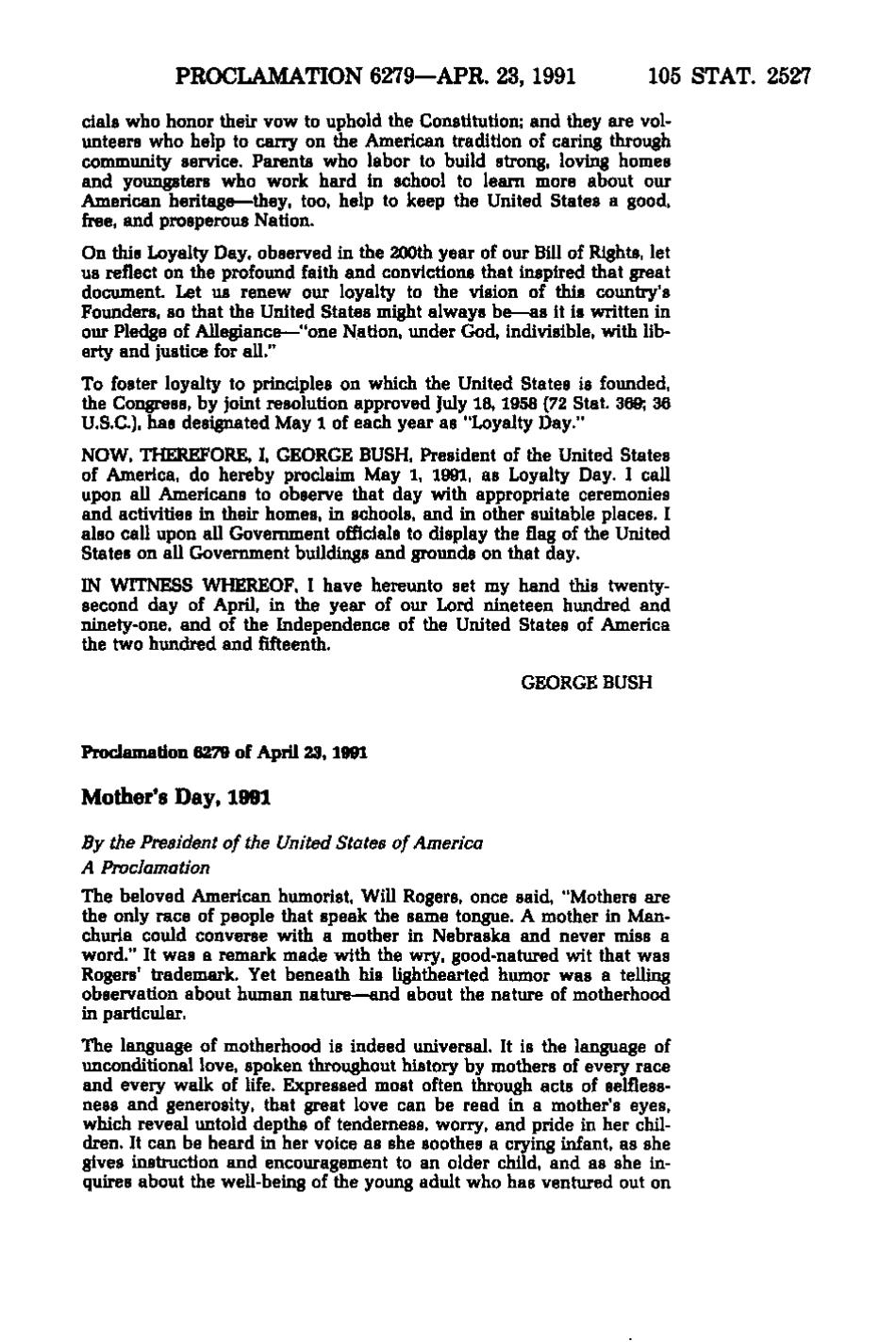PROCLAMATION 6279—APR. 23, 1991 105 STAT. 2527 cials who honor their vow to uphold the Constitution; and they are volunteers who help to carry on the American tradition of caring through community service. Parents who labor to build strong, loving homes and youngsters who work hard in school to learn more about our American heritage—they, too, help to keep the United States a good, free, and prosperous Nation. On this Loyalty Day, observed in the 200th year of our Bill of Rights, let us reflect on the profound faith and convictions that inspired that great document. Let us renew our loyalty to the vision of this country's Founders, so that the United States might always be—as it is written in our Pledge of Allegiance—"one Nation, under God, indivisible, with liberty and justice for all." To foster loyalty to principles on which the United States is founded, the Congress, by joint resolution approved July 18, 1958 (72 Stat. 369; 36 U.S.C), has designated May 1 of each year as "Loyalty Day." NOW, THEREFORE, I, GEORGE BUSH, President of the United States of America, do hereby proclaim May 1, 1991, as Loyalty Day. I call upon all Americans to observe that day with appropriate ceremonies and activities in their homes, in schools, and in other suitable places. I also call upon all Government officials to display the flag of the United States on all Government buildings and grounds on that day. IN WITNESS WHEREOF, I have hereunto set my hand this twenty- second day of April, in the year of our Lord nineteen hundred and ninety-one, and of the Independence of the United States of America the two hundred and fifteenUi. GEORGE BUSH Proclamation 6279 of April 23, 1991 Mother's Day, 1991 By the President of the United States of America A Proclamation The beloved American humorist. Will Rogers, once said, "Mothers are the only race of people that speak the same tongue. A mother in Manchma could converse with a mother in Nebraska and never miss a word." It was a remark made with the wry, good-natiu:>ed wit that was Rogers' trademark. Yet beneath his lighthearted humor was a telling observation about human natiu'e—and about the nature of motherhood in particular. The language of motherhood is indeed universal. It is the language of unconditional love, spoken throughout history by mothers of every race and every walk of life. Expressed most often through acts of selflessness and generosity, that great love can be read in a mother's eyes, which reveal untold depths of tenderness, worry, and pride in her children. It can be heard in her voice as she soothes a crying infant, as she gives instruction and encouragement to an older child, and as she inquires about the well-being of the young adult who has ventured out on
�
